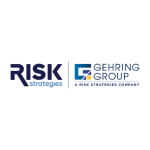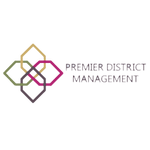FASD Training Prepares Leaders For Demands of Public Service
By Tanya Quickel
Public service is an honorable calling for many Floridians who volunteer their time and expertise to help their communities. While every person who chooses to serve makes an important commitment, serving in government can be an especially demanding commitment because it comes with the responsibility to be a good steward of tax dollars, and accountability for compliance with Florida law.
Every year, many Floridians choose to serve their communities on the governing boards of our most basic levels of local government — special districts — often with little preparation for the demands of being a public official. And while Florida law is very clear that every public official — whether elected, appointed, or hired — is responsible for following strict rules of accountability, there is actually no requirement that the leaders of special districts undergo any training for public service. It’s a little like being given the lead part in a play, except you don’t get the script until opening night, and you don’t get to read it until the spotlight is shining on you.
Personally, I found it to be a daunting assignment that my professional experience hadn’t fully prepared me for. That’s why I am now a passionate advocate for education and training for all elected officials and managers at special districts in Florida.
For well over two decades, the Florida Association of Special Districts (FASD) has been fulfilling these vital education and training needs and ensuring a high level of professionalism among the leaders of our special districts. In partnership with the state oversight agency, the Florida Department of Economic Opportunity, FASD provides educational programs such as the Certified District Manager and Officials Program, training opportunities at our annual conference, and regular member meetings around the state.
In Florida, where more than 1,700 special districts serve our residents, FASD training supports the people who are responsible for managing more than 80 specialized public services not delivered by any other state or local government agencies.
Special districts save lives. Everywhere in Florida, they fight fires, prevent floods, send emergency medical services, and provide hospitals. Special districts build communities. Throughout the state, special districts finance, build, and maintain critical infrastructure and public facilities such as parks, recreational facilities, museums, schools, libraries, landscaping, water pipes, street lights, drainage ditches, sidewalks, parking lots, and more. Special districts drive commerce. In every major city, special districts run airports, expressways, waterways, and seaports.
Although each of our missions differ, we learn from one another’s collective experience. As many special districts have only a few staff, we wear many hats. This is why it’s so important to provide resources on topics such as strategic planning and budgeting, human resources, ADA web compliance, public relations, project management, grants, and procurement practices.
Serving my fellow Floridians as a leader of a special district has been a tremendous honor, and I would encourage anyone who is interested in making a difference in their community to look at the special districts available locally and consider getting involved. And if you do step up to the government stage, in the spotlight and without a script, consider taking advantage of the professional education and training that is available. Public service can be a challenging and demanding experience, but it can also be a personally satisfying experience for those who are prepared to accept the responsibility.
Tanya Quickel serves as the Deputy Village Manager of Wellington and the ACME Improvement District and is the past president of the Florida Association of Special Districts.































I am so grateful for all the training opportunities I have had with FASD over the last 12 years, including receiving my CDM Designation. The FASD CDM training can help prepare someone who is moving into higher roles and taking on more responsibilities in a district. All of the FASD training programs teach skills that are required to function effectively in a special district.